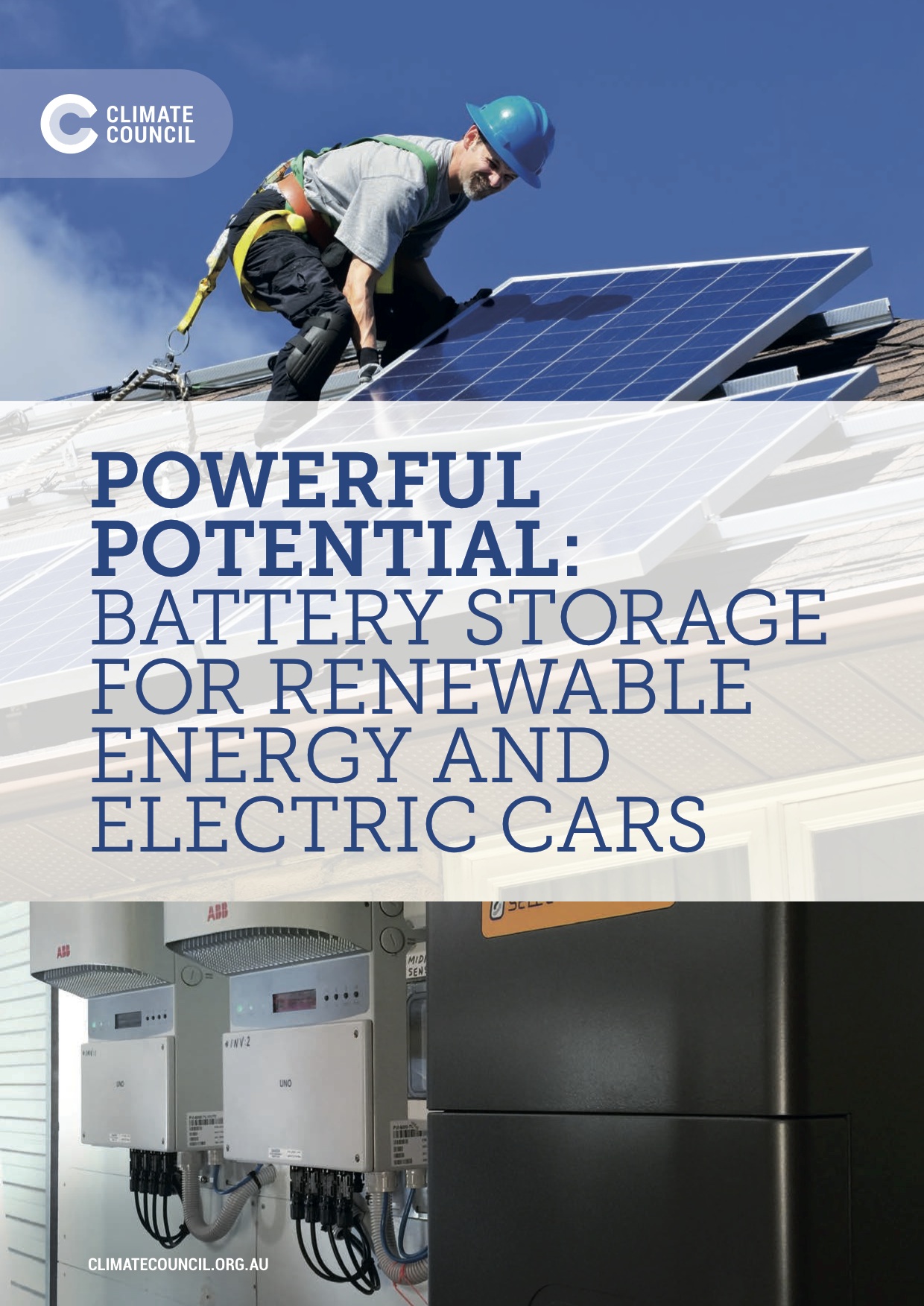2018 UPDATE: see our latest report on storage here.
Our new report has revealed that Australia could become the number one market for home battery storage – allowing households to store energy they capture from rooftop solar panels and keeping electricity costs down.
As two of the world’s biggest home battery manufacturers announce Australia will be their first market, Powerful Potential: Battery Storage for Renewable Energy and Electric Cars found battery storage costs for households will continue to fall dramatically.
Key Findings
1. Battery storage is expected to grow very quickly and will promote increased uptake of renewable energy and electric cars.
- Battery storage is a solution to the intermittency of some renewable energy sources such as solar and wind.
- Battery storage capacity is expected to grow 50-fold in less than a decade.
- Battery costs have fallen by 14% on average every year between 2007 and 2014 and more dramatic cost reductions for lithium ion batteries are expected as several companies rapidly scale up production.
- The rapidly falling cost of batteries is expected to make electric cars cost-competitive with conventional cars within the next twenty years, leading to much greater uptake.
2. Australia is expected to be one of the largest markets for battery storage due to the high cost of electricity, the large number of households with solar panels and Australia’s excellent solar resources.
- Together with rooftop solar, battery storage presents an opportunity for Australian households to use a much greater proportion of the solar photovoltaic (PV) electricity they generate and minimise the need to purchase expensive electricity from the grid.
- In Australia, battery storage in ‘behind-the-meter’ applications (such as paired with residential or commercial solar PV) is expected to undergo a similar rapid expansion to solar PV – which has grown one-hundred-fold in capacity in six years.
- Half of all households in Australia are predicted to adopt solar systems with battery storage on the basis of $10,000 battery system with a payback of 10 years, with the market potentially growing to $24 billion.
3. Battery storage can reduce electricity costs for households in several ways.
- Home battery systems can allow a household to store electricity from the grid when prices are lowest (during off-peak periods) and then rely on their battery for power (rather than the grid) during the most expensive peak time, thereby minimising their overall electricity costs.
- A battery storage system can almost double a household’s self-consumption of solar PV. Adding a 4 kWh battery to
a 5 kW solar system can increase the amount of self-generated solar electricity a household consumes from 30 to 60%. - By 2018, going off-grid by installing battery storage could be cost-competitive with staying connected as the price of battery storage falls and grid electricity remains expensive.
- As feed-in tariffs are phased out and households receive far less for the solar electricity they put into the grid and electricity prices remain high (particularly at peak times), solar PV systems with added battery storage will become the most economical solution to provide electricity.
- Battery storage will reduce energy costs and boost reliance on renewable energy for the vast areas of Australia that are not connected to the grid and therefore rely on expensive imported fuels. For example, King Island in Tasmania has halved its diesel consumption after switching to renewable energy and battery storage.
4. Battery storage technology has the potential to reduce the two biggest contributors to the cost of electricity bills in Australia – network and wholesale energy costs.
- Ergon Energy estimates battery storage deployed at the grid level could avoid costs associated with building and upgrading the network, potentially reducing costs by 35%.
- Battery storage can also reduce the cost of energy, by providing retailers with an alternative, more cost-effective means of meeting peak demand than purchasing power from expensive gas “peaking plants” (which run only at times of peak demand).
- Other benefits of battery storage at the network level include enabling greater levels of generation from renewable energy without negatively affecting the electricity network.
